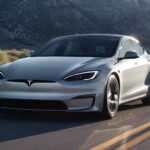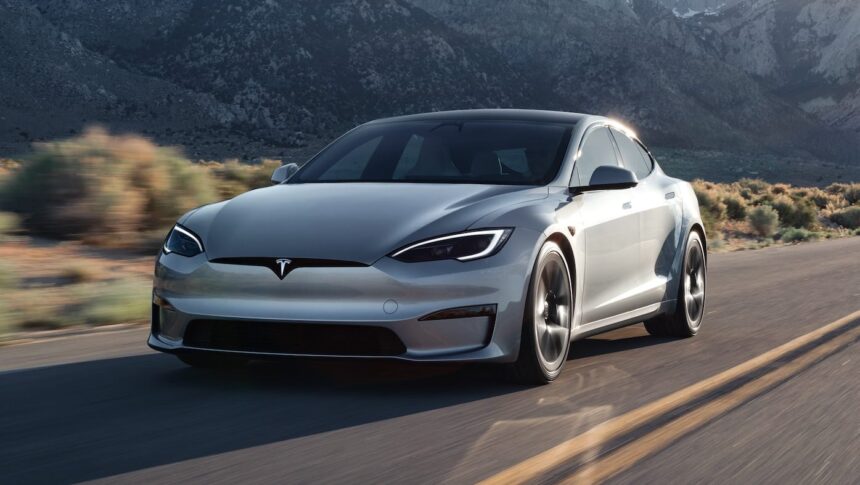EV vs Gas Insurance Cost: How Much More Are Drivers Paying in 2025?
When Americans compare electric vehicles (EVs) to gas-powered cars, most of the attention goes to fuel savings, tax credits, and performance. What often gets overlooked is the EV vs gas insurance cost—and that’s where the difference can be surprisingly large. Auto insurance rates have climbed across the board, but recent data shows that EV drivers are paying significantly more each year than those driving traditional internal combustion engine (ICE) vehicles.
Why EV Insurance Costs More
A new Insurify report highlights that the EV vs gas insurance cost gap is wider than most shoppers realize. Over the past 12 months, EV insurance rates have increased by an average of 16 percent. On top of that, insuring an electric vehicle costs roughly 49 percent more compared to an equivalent gas-powered car. That means even though EV buyers may save at the pump, their insurance premiums often wipe out some of those savings.
The higher EV vs gas insurance cost comes down to several factors. Repairs for EVs are typically more expensive, especially when battery packs are damaged. Fewer service centers nationwide are certified to handle complex EV repairs, and insurers often declare EVs a total loss after accidents more quickly than gas vehicles. These realities push premiums higher, making ownership costs harder to justify for many families.
The Most Expensive EVs to Insure
Luxury EV brands, especially Tesla, top the list when it comes to the steepest EV vs gas insurance cost. Four Tesla models—Model X, Model 3, Model Y, and Model S—are among the most expensive cars to insure in the country. Even the Tesla Model S, which averages $3,909 annually, still costs significantly more to cover than many luxury gas SUVs.
Looking at direct comparisons paints an even clearer picture of the EV vs gas insurance cost difference.
| Vehicle | Annual EV Insurance Cost | Gas Vehicle Comparison | Annual Gas Insurance Cost | Extra Cost for EV |
|---|---|---|---|---|
| Cadillac Lyriq | $3,752 | Cadillac XT5 | $2,671 | +$1,081 |
| Hyundai Ioniq 5 | $2,950 | Hyundai Kona | $1,975 | +$975 |
| Honda Prologue | $2,850 | Honda CR-V | $1,920 | +$930 |
| Tesla Model S | $3,909 | Audi Q7 | $4,050 | -$141 |
| VW ID.4 | $2,480 | VW Tiguan | $2,240 | +$240 |
| Ford F-150 Lightning | $2,950 | Ford F-150 | $2,760 | +$190 |
| Chevy Bolt | $2,200 | Chevy Trax | $2,010 | +$190 |
While not every EV is outrageously expensive to cover, the EV vs gas insurance cost gap is clear. Some models like the Ford F-150 Lightning and VW ID.4 are closer to parity, while others, especially luxury brands, carry premiums well above $1,000 per year compared to their gas counterparts.
Where You Live Shapes Insurance Costs
Location is another key factor in the EV vs gas insurance cost debate. States with higher EV adoption generally see lower premiums, largely because there are more repair facilities and better charging infrastructure. New Jersey, California, Maryland, Illinois, and Arizona are currently the most affordable states to insure an EV. Still, even in New Jersey—the cheapest state for EV insurance—drivers pay 15 percent more than they would for a gas vehicle.
By contrast, Arkansas represents the worst-case scenario for the EV vs gas insurance cost gap. With EV adoption at just 0.27 percent, far below the national average, drivers face premiums nearly double those of gas cars. Lack of repair centers and limited charging access increase risks for insurers, which directly impacts rates. States like Pennsylvania, Idaho, Iowa, and Delaware also fall on the high-cost side, with EV insurance rates averaging more than 75 percent higher than comparable gas vehicles.
Also More: US Visa Interview Waiver Ends September 2025: What Travelers, Students, and Workers Need to Know
Final Thoughts on EV vs Gas Insurance Cost
For drivers considering an EV purchase, it’s critical to factor in the EV vs gas insurance cost before signing a contract. While EVs deliver savings on fuel and may qualify for federal tax credits, higher insurance premiums can offset those financial benefits. The gap is unlikely to close anytime soon, as insurers continue to adjust rates based on expensive repairs and limited service networks.
With federal EV tax credits set to expire in September, many Americans are questioning whether the financial math adds up. At the end of the day, the EV vs gas insurance cost could play a decisive role in slowing or accelerating electric vehicle adoption across the United States.
Also More: Double Social Security Payments Arrive This Week—Here’s Who Gets Paid







